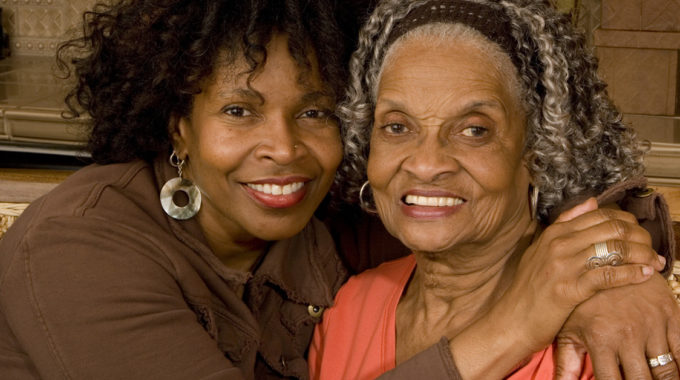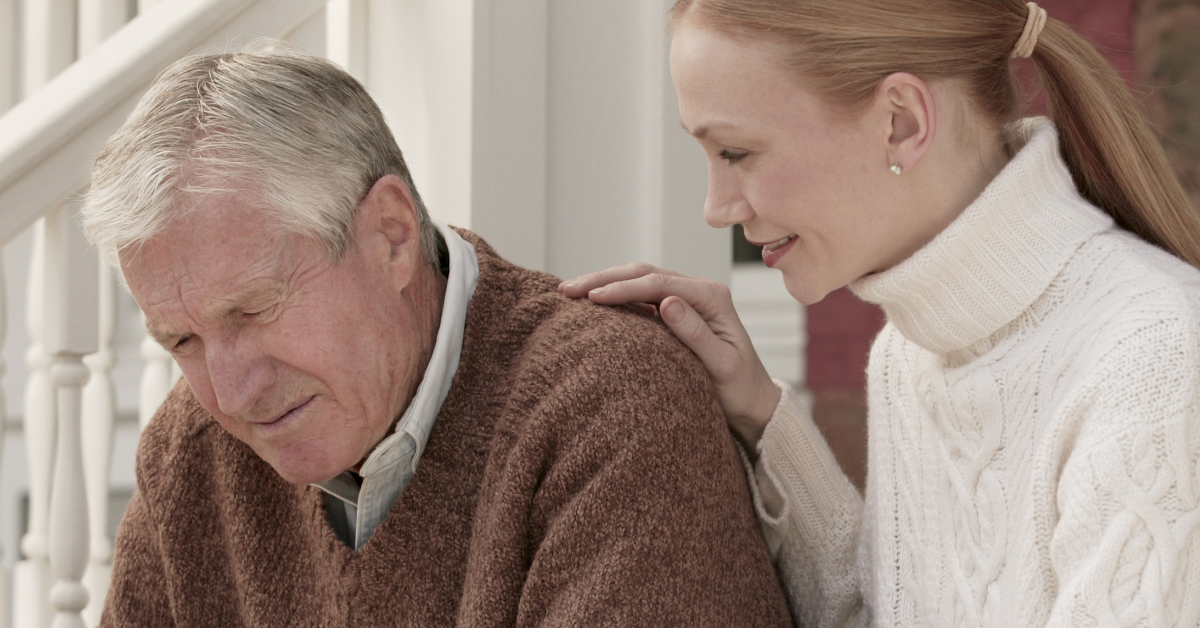
How to Speak with Someone Who is Dying
For many, visiting a dying person can be uncomfortable because we don’t know what to say or how to act. Could we say the wrong thing and upset a loved one during a very important time? On the other hand, people who are dying usually benefit from feeling loved and cared for. How do we balance the desire to be helpful with the risk of doing the wrong thing?
Ask Permission to Visit a Dying Person
First, call the primary family caregiver and ask if a visit would be appreciated. People who are dying often experience energy in waves. Some days they may want a visitor, while on other days, they may be too tired. Perhaps they’ve had a lot of visitors recently and could use a break. They may also be wrestling with emotions such as not wanting to be seen in a weakened state or other personal challenges that might make a visit upsetting. A dying person’s readiness for a visit can change suddenly. Try to make sure the primary caregiver has a way to contact you at the last minute if they need to call off the visit.
Be Aware of the Person’s Energy
When visiting a dying person, one or two checks on your loved one’s energy status could be helpful. A visitor might ask “Are you enjoying all this company, or are we interrupting your sleep?” An answer such as “I could use a nap,” could be taken as an indication that they are getting tired and a short visit would be better than a long one.
Acknowledgement is Usually Good
It’s hard to predict how any individual will feel about a particular statement. However, it seems that acknowledgement of the situation and a statement of caring is usually appreciated. For instance, “We’re saddened by what’s happening, and I just wanted to come tell you myself that I really care for you and you’ve been a good friend to me.” Author Mindy Dykes wrote in her book Beyond “I’m Sorry” Supporting A Family Facing Cancer that someone said “I heard your son has cancer and that really, really sucks.” Dykes reports appreciating the statement and described it as “plain, simple, and on point.” You can download the book for free here: Beyond “I’m Sorry” Supporting A Family Facing Cancer.
Offering Prayers to An Atheist
Estimates put atheism and agnosticism between 8% and 26% depending on the research methods. If you don’t know the beliefs of a friend or family member, he or she may be among them. A simple statement such as “you are in our prayers” is usually regarded as a message of kindness and caring. A very small change in word choice, though, can go from making the person feel cared for to making the person feel embattled. Atheists have written that, when a visitor knows the dying person does not participate in a similar religion, a statement as innocuous as “you will be in our prayers,” can feel like an accusation or a challenge.
Don’t Offer Medical Advice to a Hospice Patient
Unless you are a doctor, don’t volunteer medical advice to a dying person or to their family – especially if that advice is about a potential cure. Families in hospice have already sought medical advice to a great extent, done all the research, and reached their decisions. Hospice is a time of caring and connecting and not for rehashing cure-seeking medical plans. When families talk about comments they did not appreciate, cure-seeking medical advice often finds a place on that list.
Don’t Start Conversations about the Disease or Dying
Hospice is actually a time that focuses on life, caring, and comfort. When listing comments that were unappreciated, families sometimes include conversations that drew them into discussing the disease or dying. Questions or statements that can have this effect include:
- What’s the prognosis? How long does he have to live?
- What’s the diagnosis?
- What do you think caused this?
- How common is that?
It may be okay to invite your dying loved ones to tell you how they are feeling. “I would want to know how you are really feeling if that’s ever something you want to talk about.” That would open the door to them taking leadership in a conversation about the disease or dying, if that’s what they want to talk about. However, with visitors, it’s often not what they want to talk about.
Talk About Life
In addition to quickly expressing concern and caring, it’s usually a good thing to share a positive memory. For instance, “I don’t know if you even remember this, but that weekend we visited you has always been special to me. I can still remember . . .” Also, quickly mentioning the people who care can be good, “Sue wanted me to tell you that she is thinking about you and sends her best.”
When Offering Help, Be Specific
It’s not necessary that visitors offer some form of assistance. Your presence is the gift. Some people want to do something in addition to visiting, and that can be good, too. Families often don’t know what to do with open ended offers for help. A specific, concrete offer can be more useful. For example:
- “Is it okay if I come mow the lawn next week? It would mean a lot to me to be helpful.”
- “How about I come tomorrow and do the laundry so you can spend more time with her.”
- “May I bring some spaghetti on Thursday? Maybe some garlic bread, too?”





